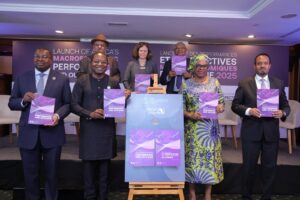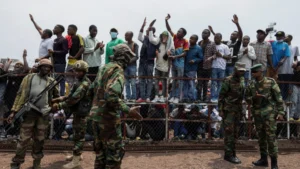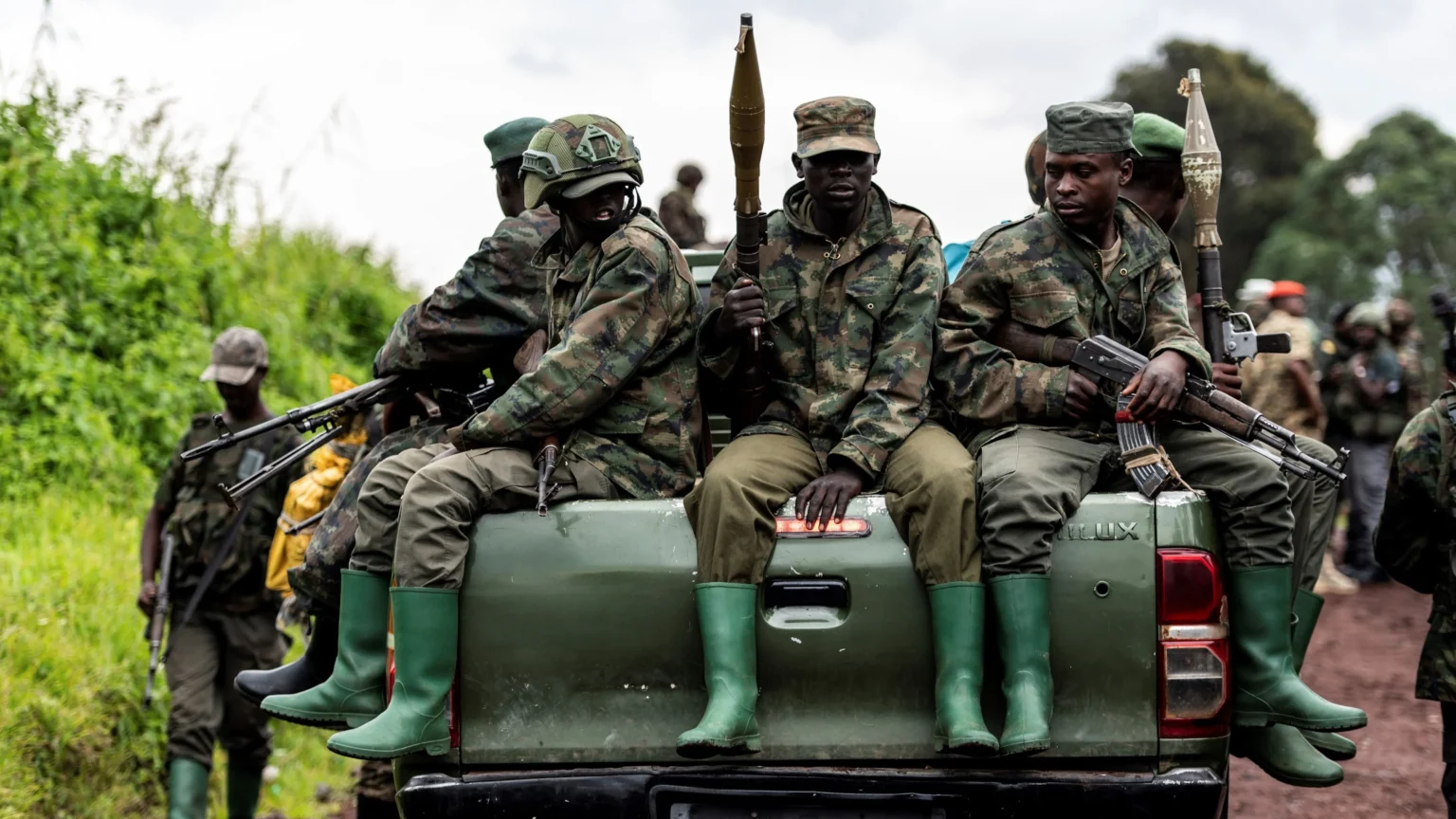- M23 rebels, backed by Rwanda, have seized Goma in eastern DRC, prompting accusations of a “declaration of war” from the Congolese government.
- The conflict has escalated tensions between DRC and Rwanda, with international calls for de-escalation and emergency summit planned in Nairobi to address the crisis.
- Thousands have been displaced, and the humanitarian toll continues to worsen in a region already plagued by decades of instability.
Gunfire echoed across Goma, the largest city in the eastern Democratic Republic of the Congo (DRC), as M23 rebels claimed to have seized the city on Sunday. The announcement by the Rwanda-backed rebel group came despite the United Nations Security Council’s (UNSC) calls for an immediate halt to hostilities.
Goma, home to nearly two million residents, was thrust into chaos as reports emerged of exchanges of fire between DRC and Rwandan troops along the shared border on Monday.
In a statement on social media platform X, DRC government spokesman Patrick Muyaya confirmed the presence of Rwandan forces in the troubled Goma region. “The government continues to work to avoid carnage and loss of human life in view of the manifest intentions of Rwanda,” he said, urging residents to remain indoors and avoid acts of vandalism or looting.
M23 Rebels tighten grip on Goma
M23 rebels’ capture of Goma marked the expiration of a 48-hour ultimatum issued to DRC forces to surrender their weapons. Rebel leaders called for calm among Goma residents and instructed DRC soldiers to gather at the city’s central stadium. Witnesses confirmed the rebels’ presence in the city center, with some sharing footage of heavily armed fighters patrolling the streets.
The takeover has exacerbated tensions in DRC’s mineral-rich eastern region, displacing thousands and heightening fears of a broader regional conflict. M23 fighters have been battling Congolese forces and UN peacekeepers on Goma’s outskirts for several days, escalating an already dire humanitarian crisis.
DRC accuses Rwanda of “frontal assault”
In response to the rebel advance, the DRC government accused Rwanda of orchestrating the attack, branding it a “declaration of war.” Foreign Minister Therese Kayikwamba Wagner described Rwanda’s actions as an “open and deliberate violation” of Congolese sovereignty during an emergency UNSC meeting.
The accusations have drawn swift denials from Kigali, which blamed Kinshasa for triggering the conflict. “The fighting close to the Rwandan border continues to present a serious threat to Rwanda’s security and territorial integrity,” Rwanda’s Ministry of Foreign Affairs said, emphasizing the need for a defensive stance.
UN experts estimate that Rwanda has deployed 3,000 to 4,000 troops in support of the M23, providing advanced weaponry, including missiles and sniper equipment. The UNSC called for the withdrawal of “external forces” from the region but refrained from explicitly naming Rwanda. UN Secretary-General Antonio Guterres also urged Rwanda to withdraw its forces from DRC—a call that Kigali rejected.
Diplomatic efforts to avert escalation
As international pressure mounts, regional leaders are stepping up diplomatic efforts to defuse the crisis. Kenyan President William Ruto, chair of the East African Community (EAC) bloc, announced that DRC President Felix Tshisekedi and Rwandan President Paul Kagame had agreed to attend a summit in the coming days. Ruto appealed to both leaders to “heed the call for peace from the people of our region and the international community.”
“As chair of the EAC, I call on the parties to the Luanda process and my brothers, President Félix Tshisekedi and President Paul Kagame, both of whom I have spoken to this evening, to heed the call for peace from the people of our region and the international community.”
Kenya’s Ministry of Foreign Affairs confirmed that an emergency meeting for heads of state would address the situation. “President Ruto will lead discussions aimed at a sustainable resolution to the conflict,” said Korir Sing’oei, principal secretary at the ministry.
Humanitarian toll and global concerns
The conflict’s toll on Goma’s population has been devastating. The UN described the situation as causing “mass panic,” with thousands forced to flee their homes. The city’s residents, already grappling with decades of instability, now face an uncertain future.
The fighting has also claimed the lives of about a dozen foreign peacekeepers, further highlighting the perilous security situation. The DRC’s eastern region has long been plagued by ethnic tensions, regional rivalries, and armed militias, fueling one of the world’s worst humanitarian crises over the past three decades.
The UNSC, in its latest statement, urged all parties to de-escalate tensions and prioritize a peaceful resolution. While the council’s language stopped short of assigning direct blame, the urgency of the situation has placed Rwanda under global scrutiny.
With the battle for Goma threatening to reignite a broader regional war, the coming days will be critical in determining whether diplomacy can stave off further bloodshed or if the region is set to plunge deeper into conflict.
Read also: What next on the DRC conflict as Rwanda’s Kagame sweeps to victory




